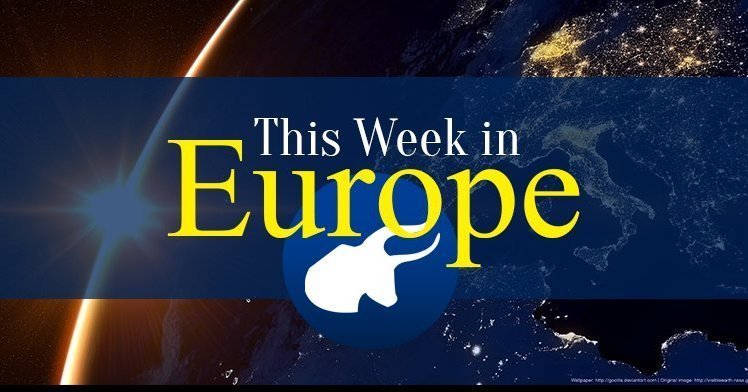UK Prime Minister announces resignation
After months of increasing pressure and conflict within her own party over the state of Brexit, Theresa May announced her plans to resign as UK Prime Minister. Plans to reach out further to other parties (for example by opening the option of a second referendum) provoked a severe backlash within the governing Conservative Party and left May isolated even within her own government. Unable to continue any longer, she announced that she would step down as party leader on 7th June, allowing for a leadership contest to take place within the party. Once this has been resolved, towards the end of July, she will step down as Prime Minister and the newly elected party leader will take over that post. Conservative Party rules stipulate that new leaders are chosen through a series of rounds, where candidates must win votes from other party MPs, eliminating one candidate each round. Once only two candidates are left, the membership of the party (who are known to be much more right-wing and pro-Brexit than the average in the wider public) vote to pick the new leader.
Abortion law gains new prominence in Maltese politics
Malta has some of the strictest abortion laws in Europe but activists are increasingly hopeful they can change this. New campaign groups have been formed, doctors supportive of reform have been gathered and the Prime Minister has said the topic should be open for discussion. Though the country has made progress on LGBT rights such as gay marriage, abortion remains much more contested and most politicians are unwilling to speak out in favour of improved abortion rights. The opposition is hoping it can use this issue to turn voters against the governing Labour Party and has called the European Parliament elections a ‘referendum on abortion’ (a tactic that may backfire given the sizeable lead of the Labour Party in the polls). Currently abortion is illegal in all circumstances and while women’s rights activists have taken inspiration from the referendum in Ireland which repealed its constitutional ban on abortion, current surveys of public opinion in Malta suggest such a strategy would fail.
New Ukrainian President calls for snap elections
Immediately after his inauguration, Ukraine’s new President, Volodymyr Zelenskiy, announced the dissolution of the Ukrainian Parliament in order to bring forward early elections. During his inauguration speech Zelenskiy also set out his plans to end the immunity from prosecution of lawmakers and to establish a ceasefire in eastern Ukraine, where Russian-backed separatists are engaged in fighting with the Ukrainian authorities. He also urged politicians and the public not to idolise the office of the presidency, stating that he did not want his “portraits to hang in your offices”. While parliamentary elections had previously been scheduled for October, they have now been brought forward to the end of July. Zelenskiy will hope to use the momentum of his own election victory to bring in a large majority of lawmakers from his party into the country’s Parliament, in much the same way as Macron did with La République En Marche in 2017.
Juncker lashes out at nationalists ahead of EP elections
In an interview given on Wednesday, the outgoing president of the European Commission said that “these populist, nationalists, stupid nationalists” hate those who “come from far away”. Regarding Brexit, Juncker argued that it had increased support for the European Union - but that the United Kingdom had to leave, that the time is up. “This process is harming the general atmosphere in Europe”, Juncker said regarding Brexit, “it’s harming growth perspectives worldwide.” Another referendum might not turn up a different result, said Juncker, and so it would be pointless to organize one until the British “agree among themselves.”
Council of Europe accuses Hungary of human rights violations
On Tuesday, a report published by the Council of Europe accused Hungary’s government of widespread human rights violations such as depriving refugees of food. The same report pinpoints the rhetoric and policies of PM Viktor Orban as the reason for which the asylum seekers were received in such a poor manner. When they arrived the refugees were kept in two transit zones on the Serbian border of Hungary on the express orders of Orban’s government and prevented from entering the country. The Council called on Hungary to “refrain from using anti-migrant rhetoric and campaigns which fan xenophobic attitudes.” Moreover, excessive use of violence by the police during the removal of refugees was identified by the Council of Europe. Coupled with the restrictions placed on civil society, the independence of the judiciary and infringements on gender equality, with government policies favoring women solely as child bearers, Hungary’s treatment of migrants has been labeled as criminal by CoE representatives.
Salvini and Le Pen ahead, but sovereignist group remains small
The European elections on Sunday gave Matteo Salvini’s League on top of the polls in Italy, with 31% to 34% of the votes, ahead of the center-left Democratic party - who managed a small recovery and declared itself satisfied - and the populist Five-Star Movement. The League is rising in popularity after last year’s election when it scored only 17% compared to the Five-Star’s 32%. However, Salvini was counting on the success of his fellow populist Eurosceptics in order to form a ‘sovereignist’ group in the European Parliament. Le Pen might have won in France, but their group will only have about 70 members of the 751 of the deputies. The vote, however, might empower the League to challenge its coalition partner for supremacy in Italy. In comparison, no Five-Star leader appeared in public to comment on the Sunday results.
Brits punish Conservatives and Labour in elections
Still on Sunday, the United Kingdom’s two main parties, the Tories and Labor, suffered major losses as the electorate preferred to go towards the Brexit Party and the pro-Remain Liberal Democrats. The Conservatives are projected to win around 10% of the popular vote, behind the Green Party. The same story is valid for Labor. Nigel Farage’s new Brexit Party, however, took home 32% of the votes - 28 seats. The Liberal Democrats also exceeded expectations, coming in second with 20% of the vote and 14 seats. The election came days after PM Theresa May was forced to resign over her failure to handle Britain’s exit from the European Union. About 35% of the votes went to parties that support a hard Brexit - and 35% to parties that back a second referendum and remaining in the EU (LibDems, Greens and Change UK).
Romanian expats queue to vote against government
During the European elections, Romanians all over Europe had to queue for hours at embassies and consulates in order to vote. In the end, after hours of waiting, some did not get to vote. Social media was full of footage and photographs showing huge lines extending for several blocks in Stuttgart, Valencia, Amsterdam, Graz, Dublin, and Munchen, among others. In Brussels, voters had to wait about 7 hours before casting their ballots. Angered by the slowed process, people chanted “thieves” or started shoving. Their anger was directed at the ruling Social Democratic party, who organized 18.000 polling stations nationally but only 441 for the diaspora. Only around 370.000 Romanians abroad managed to vote, out of a projected number of 4 million. In the Netherlands, armed police with dogs were called to disperse the people who were turned away after waiting for hours. In Munich, German police expanded the perimeter of the Romanian consulate so that more people could vote. Responding to the poor organization, Romanian president Klaus Iohannis called for the voting hours to be extended - but they weren’t. Foreign Minister and PSD member Teodor Melescanu defended the government’s handling of voting in the diaspora.
This is not the first time expat Romanians have had trouble voting. Similar queues also formed up during the 2014 Romanian presidential election, when thousands of Romanians were also left waiting for hours. In the end, the Social Democrats gathered only 3% of votes in the diaspora.


Follow the comments: |
|
